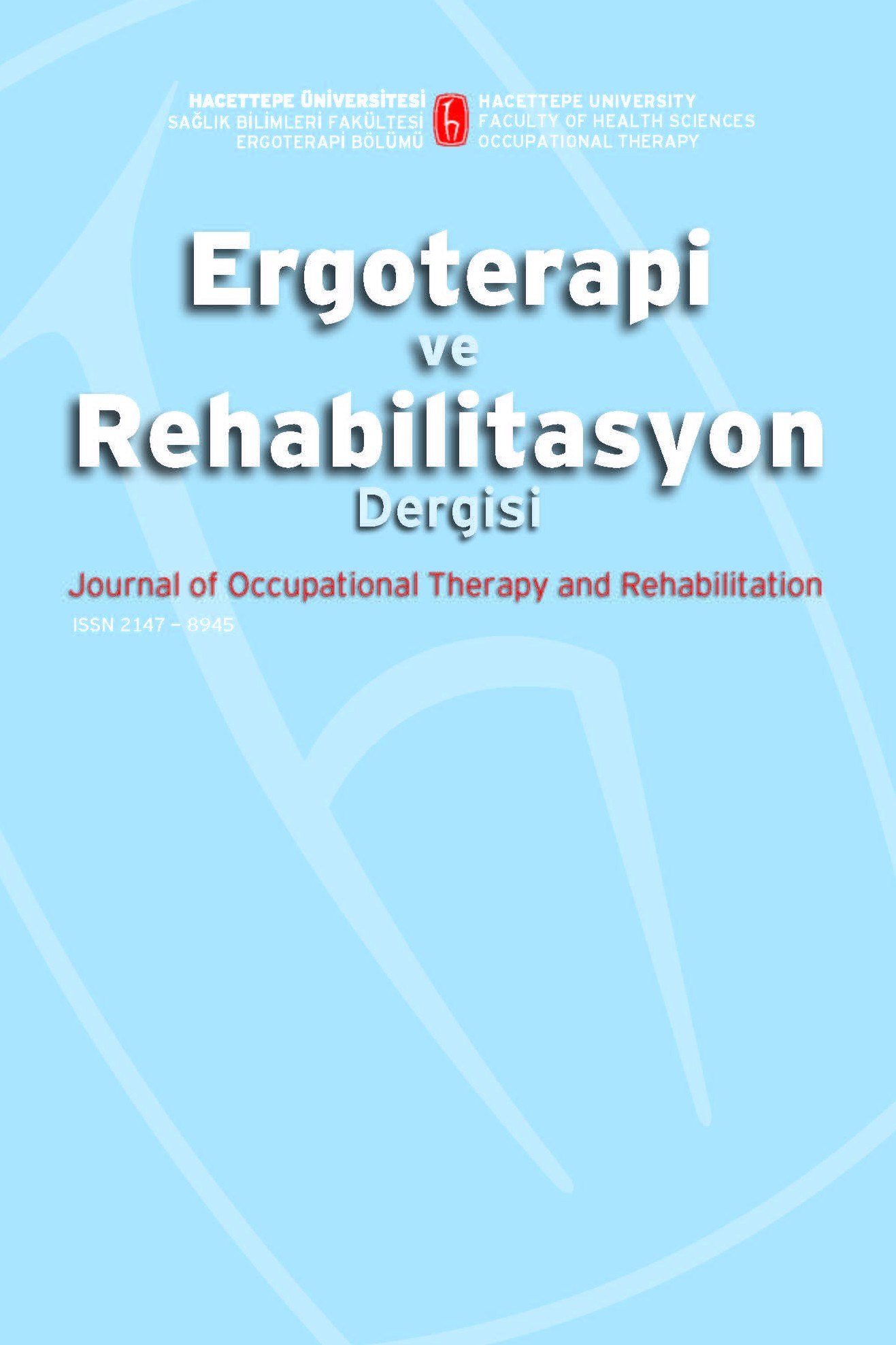Hacettepe Üniversitesi Ergoterapi Lisans Eğitimi Yetkinlikleri
Amaç: Hacettepe Üniversitesi ergoterapi lisans programında kazandırılması hedeflenen yetkinliklerin önemliliğinin öğrenciler tarafından değerlendirilmesi amaçlanmıştır. Gereç ve yöntem: Hacettepe Üniversitesi Ergoterapi Bölümünde okuyan öğrencilerden “Ergoterapi Lisans Programında Kazandırılacak Yetkinlikler” olarak tanımlanan on yetkinlik 0-10 arasında puanlanması istenmiştir. Sonuç: Çalışmaya 1.sınıf (n=17), 2.sınıf (n=16), 3.sınıf (n=23), ve 4. sınıfta (n=14) okuyan 70 ergoterapi lisans öğrencisi katılmıştır. Genel anlamda ergoterapi öğrencilerinin lisans eğitimi ile kazandırılacak yetkinlikleri önemli buldukları sonucuna varılmıştır. Öğrenciler tarafından en önemli bulunan yetkinlik 9,31±1,14 ile “Kişisel farklılıkları, kültürel inançları, örf ve adetleri ve bunların aktivite, rol ve katılıma etkilerini dikkate alır ve saygı duyar.” yetkinliğidir. Az önemli bulunan yetkinlik 8,11±2,10 ile “Kişiler ve toplulukların aktivite ve yaşamsal rollerini yerine getirmek ve sağlık ihtiyaçlarını belirlemek amacıyla uygun teorileri ve modelleri seçer, analiz ve sentez ederek müdahaleyi planlar.” yetkinliğidir. Tartışma: Bolonga süreci dahilinde yenilenmiş ergoterapi lisans programının temelini oluşturan yetkinliklerin bu programın bir paydaşı olarak kabul edilen öğrenciler tarafından önemli bulunmuş olması programın gücünü ve kazandırmayı planladığı yetkinliklerin paydaşların beklentileriyle örtüştüğünü göstermektedir
Competencies of Occupational Therapy Undergraduate Program at Hacettepe University
Purpose: It was aimed to evaluate the significance of the target competencies that are going to be gained by the students of Hacettepe University Occupational Therapy Program. Materials and Method: The students of Hacettepe University Occupational Therapy Department were asked to rate the “Occupational Therapy Bachelor Program Competencies” with a score range of 0-10. Result: 70 undergraduate occupational therapy students which are at first (n=17), second (n=16), third (n=23) and fourth (n=14) years have joined the study. In general, it has been concluded that occupational therapy students find the competencies gained with a bachelor’s degree important. Most important competency with an average rate of 9, 31±1, 14, is “Appreciating and respecting individual differences, cultural beliefs, customs and their influence on occupation and participation”. The least important competency with an average rate of 8,11±2,10 is ”Selecting appropriate occupational therapy theories and practices to determine health needs and to fulfill occupational roles of individuals and populations, and plan the intervention by analyzing and synthesizing.” conclusion: The competencies forming the basis of the occupational therapy degree program, which was renewed with the Bologna process, are considered to be significant by the students who are a stakeholder of the program. This shows the power of the program and indicates that competencies that are planned to acquire coincide with the expectations of stakeholders
